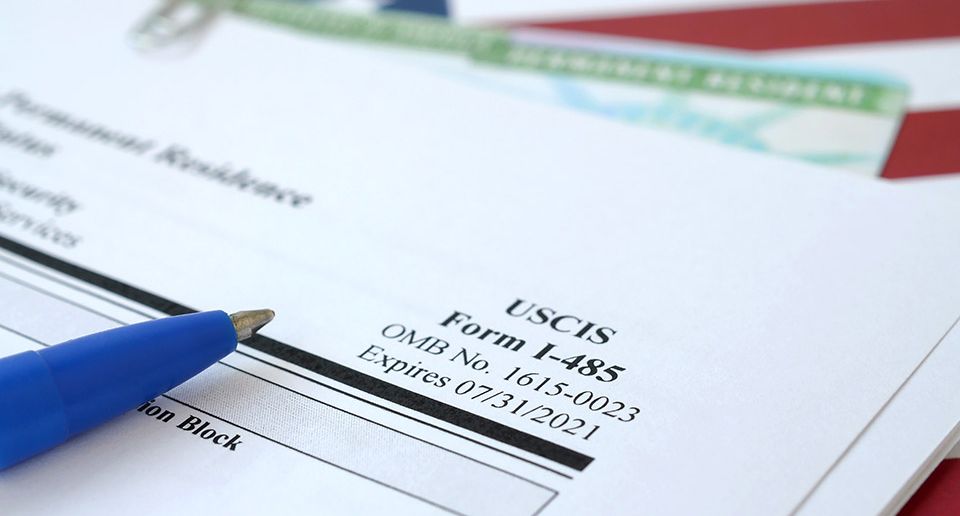Soy indocumentado, ¿califico para beneficios públicos?
Santos Lloyd Law Team • June 15, 2023
Click here to read this article in English and Portuguese
La respuesta a esto es: ¡depende! Los criterios de elegibilidad para los beneficios públicos varían entre estados. Siempre es importante verificar cuales son los requisitos del estado en el que vive para acceder a los beneficios públicos.
En el estado de California, puede acceder a beneficios públicos según su estado migratorio. Los beneficios públicos pueden ayudar a cubrir gastos básicos como alimentación, vivienda y atención médica.
- ¿Para qué beneficios públicos soy elegible en California?
Los inmigrantes que son residentes de California pueden calificar para la matrícula estatal en la Universidad de California, las Universidades Estatales de California y los Colegios Comunitarios de California si tienen ciertos tipos de estatus migratorio. Los estudiantes indocumentados aún pueden calificar para la matrícula estatal de acuerdo con el Proyecto de Ley 540 de la Asamblea de California. Los sitios web de universidades y colegios suelen tener información y recursos específicamente para estudiantes indocumentados. La oficina de admisiones del campus también puede responder cualquier pregunta adicional que pueda tener al respecto.
En California, MediCal de emergencia (California’s Medicaid program) está disponible para todas las personas, independientemente de su estado migratorio. Si es indocumentada y está embarazada o acaba de tener un bebé, puede ser elegible para la cobertura prenatal de MediCal y la cobertura relacionada con el embarazo hasta por un año.
Los niños indocumentados y las personas mayores de 50 años pueden calificar para MediCal completo.
Si ha solicitado una visa U, puede ser elegible para MediCal completo, asistencia en efectivo (CalWORKs, GR, CAPI) y el programa estatal de asistencia alimentaria (CalFresh).
Si ha solicitado una Visa T, puede ser elegible para MediCal completo, Asistencia en efectivo (CalWORKs, GR, CAPI), Programa estatal de asistencia alimentaria (CalFresh), Beneficios federales para refugiados y Ayuda financiera federal.
Si ha solicitado VAWA, puede ser elegible para MediCal completo, Asistencia en efectivo (CalWORKs, GR, CAPI), Programa estatal de asistencia alimentaria (CalFresh) y Ayuda financiera federal.
- ¿Recibir beneficios públicos me impedirá obtener una Green Card en el futuro?
Muchas personas temen solicitar beneficios públicos porque no quieren ser considerados una carga pública. La “carga pública” es una prueba para determinar si es probable que alguien que solicita una tarjeta verde o una visa para ingresar a los Estados Unidos dependa de ciertos beneficios públicos en el futuro. Si es probable que alguien sea una carga pública, se negará su tarjeta de residencia o solicitud de visa.
La carga pública afecta a las personas que solicitan la residencia permanente a través de una petición de familiar de ciudadano estadounidense o residente permanente, o que solicitan una visa para ingresar a los Estados Unidos. Otros casos de inmigración, como el asilo, la naturalización o la cancelación de deportación en la corte no se ven afectados por la regla de carga pública. Además, los sobrevivientes de violencia doméstica, tráfico y otros delitos graves pueden recibir beneficios públicos sin que ello perjudique su estatus migratorio. Sin embargo, es extremadamente importante decir siempre la verdad al solicitar beneficios públicos para evitar la inmigración u otros problemas relacionados.
- ¿Recibir MediCal me causará problemas para obtener una Green Card en el futuro?
No - MediCal, CalFresh, los programas de vivienda, WIC, ayuda en caso de emergencia y desastre, Head Start y las comidas escolares gratuitas o de costo reducido NO son parte de la prueba de carga pública. Esto significa que recibir cualquiera de estos beneficios no causará problemas para obtener la Residencia Permanente en el futuro. Recuerde siempre decir la verdad cuando solicite beneficios públicos para evitar la inmigración u otros problemas relacionados.
- ¿Qué pasa con recibir beneficios relacionados con COVID-19? ¿Causarán problemas con mi solicitud de tarjeta verde?
¡De ninguna manera!, los cheques de estímulo y los créditos fiscales tampoco forman parte de la prueba de carga pública. Los beneficios públicos de COVID-19 relacionados con alimentos, vivienda, asistencia en efectivo, asistencia de alquiler, créditos fiscales, pagos de estímulo, desempleo, subvenciones de ayuda financiera para estudiantes, Programa de protección de cheques de pago y indulgencia de préstamos estudiantiles NO se considerarán para la prueba de carga pública. El gobierno ha declarado que no considerará las pruebas, el tratamiento o la atención preventiva de COVID-19, incluidas las vacunas, como parte de la prueba de carga pública. De hecho, el gobierno alienta a todos, independientemente de su estatus migratorio, a recibir la vacuna contra el COVID-19.
Recuerde que las leyes y políticas de inmigración cambian constantemente, por lo que es mejor comunicarse con un abogado si tiene alguna pregunta antes de solicitar beneficios públicos.
Este blog no pretende ser una asesoría legal y nada aquí debe interpretarse como el establecimiento de una relación abogado-cliente. Programe una consulta con un abogado de inmigración antes de actuar sobre cualquier información que aquí lea.
This Facebook widget is no longer supported.
Similar Posts

The answer to this is: it depends! Eligibility criteria for public benefits varies among states. It is always important to check what the state you live in requires for someone to receive public benefits. In the state of California, you might be eligible for public benefits depending on your immigration status. Public benefits may help you cover basic expenses like food, housing, and healthcare.

U.S. Citizenship and Immigration Services (USCIS) has announced a major change to the H-1B cap selection process. Under a final rule issued on December 29, 2025, USCIS will replace the long-standing random H-1B lottery with a wage-weighted selection system that favors higher-paid and more complex positions. The rule is scheduled to take effect on February 27, 2026 , just ahead of the fiscal year 2027 H-1B cap registration season, unless delayed by legal challenges. If implemented, USCIS is expected to release additional guidance explaining how employers must submit registrations under the revised process. This change marks one of the most significant reforms to the H-1B program in recent years. Up until 2025, all registrations were treated equally once the annual cap was reached. Under the new system, selection odds will be tied to wage levels based on the U.S. Department of Labor’s Occupational Employment and Wage Statistics data. All H-1B registrations will still be placed into a single selection pool, but registrations tied to higher wage levels will receive multiple entries into that pool, increasing their likelihood of selection. Lower wage levels will receive fewer entries, making selection less likely but not impossible. H-1B wage levels are not determined solely by salary. Each wage level reflects the complexity of the job, the level of responsibility involved, and the education and experience required . Entry-level positions involving routine duties and close supervision are generally classified at the lowest wage level, while positions requiring independent judgment, advanced skills, and significant responsibility fall into higher wage levels. The highest wage level is reserved for roles that involve expert knowledge, strategic decision-making, and substantial leadership or technical authority. USCIS is expected to closely scrutinize selected petitions to ensure that the wage level claimed during registration is supported by the job duties and salary offered in the petition. Any discrepancies between the registration and the petition may result in requests for evidence, denials, or enforcement action. With the elimination of the purely random lottery, employers should begin preparing early by carefully evaluating job descriptions, wage levels, and overall H-1B strategy. Accurate classification and thoughtful planning will be essential under this new wage-based selection system. If you are an employer considering H-1B sponsorship, or a foreign professional wondering whether your position may qualify under the new wage-based system, consulting with experienced immigration counsel is more important than ever. Santos Lloyd Law is actively advising clients on H-1B cap registrations and strategy under the new rules. To discuss your options or determine whether you may qualify, contact our office to schedule a consultation.

During the recent administration there has been an increase in issuance of Requests for Evidence for EB-1A petitions for those of Extraordinary Ability. A Request for Evidence is a request that is made by USCIS that should explain how the evidence is deficient in proving the criteria argued and what additional evidence needs to be provided by the applicant to meet the criteria. EB-1A petitions are already normally subject to higher scrutiny because their approval is the first step needed to apply for Lawful Permanent Residence or a green card. USCIS normally requires not just evidence but that the evidence be provided with context and information to show why it matters in a particular field. For example, if you were providing evidence of your membership in an organization that requires outstanding achievements of its members, just providing evidence of the membership is not enough. You must explain what that membership is and provide background information on the organization granting the membership. You also need to provide evidence on the criteria that is used to select the members, information on those who select the members to show that they are recognized experts, other documentation such as articles about the membership organization to show its importance, and any other relevant evidence and background information to show that the criteria is met. A request for evidence being issued prior to the current administration was not uncommon, but in the current climate it is more surprising to not receive a request for evidence for this type of case. It is important to remember that a request for evidence is not a denial. Depending on the validity of the information in the request and the substance some Requests for Evidence can be overcome, and the case be approved. It is important to carefully review the request and note if there are any errors in the content and application of the regulations by USCIS. If you have an attorney, you should work with them and make sure that you provide any evidence you think may be helpful. Although there is a deadline by which a response must be submitted, attention to detail and patience will go a long way when dealing with having to respond to a request for evidence. If you believe you may qualify for this type of visa, please feel free to contact our office.




